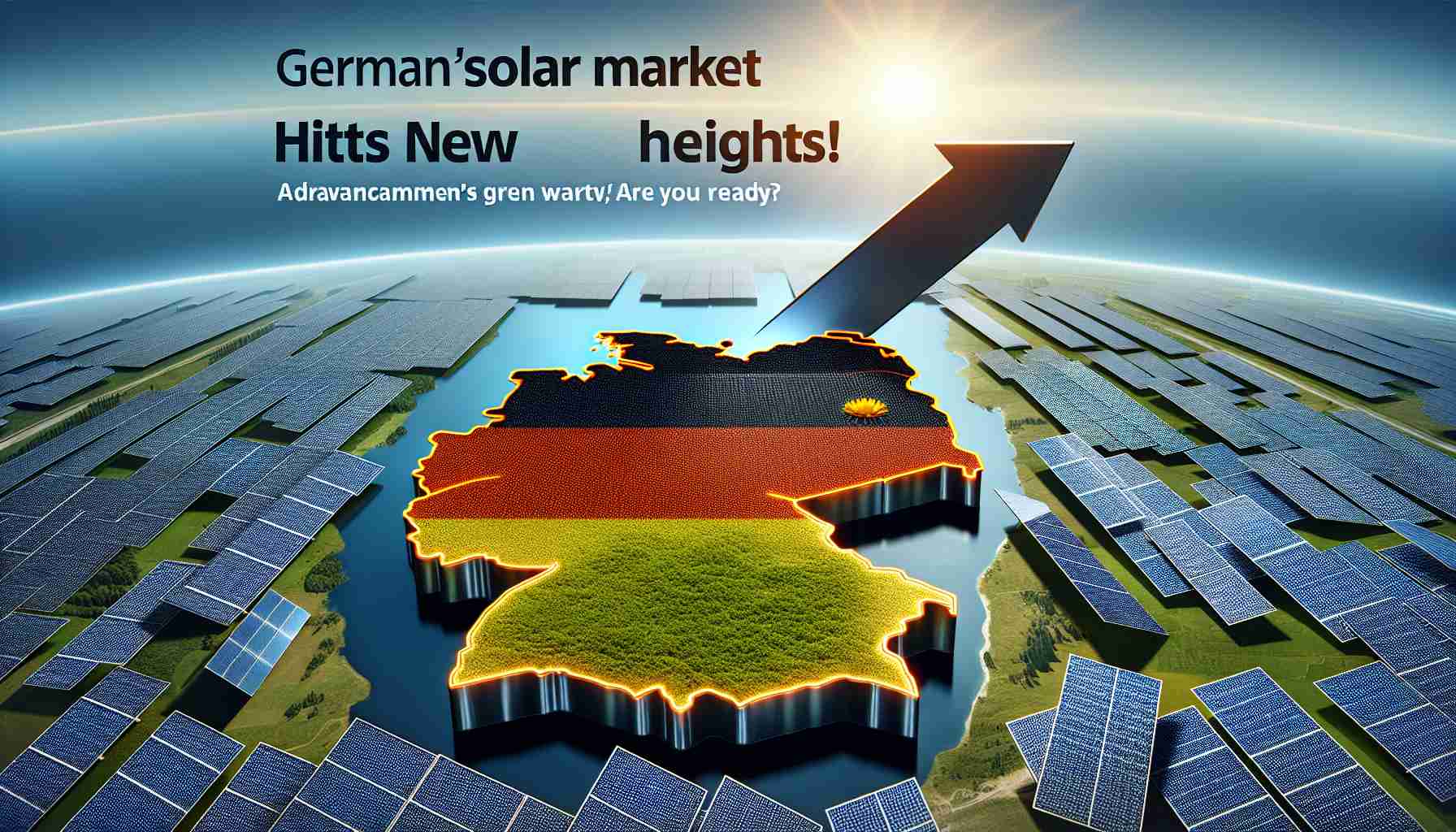
Germany’s renewable energy landscape is experiencing a remarkable transformation, with solar capacity soaring to new levels. As of mid-2024, the nation boasts an impressive 90 GW of installed solar capacity, bolstered by an additional 7.5 GW in just the first half of the year. Experts predict that Germany will surpass the 100 GW milestone by 2025. However, achieving the ambitious goal of 215 GW by 2030 necessitates a drastic increase in annual installations to approximately 15 GW or more.
Despite this explosive growth, solar developers are grappling with a series of economic challenges that could dampen their enthusiasm. Current market conditions have shifted, leading to lower energy price forecasts and modest earnings from feed-in tariffs, which have become highly competitive. Additionally, the occurrence of negative power prices during peak daylight hours is creating a complex environment for developers trying to maintain momentum.
Germany’s battery energy storage sector is essential for stabilizing this growth. As more solar power enters the grid, the ability to effectively store and manage energy will be crucial. Developers should closely examine lessons learned from the UK’s battery market to navigate these hurdles successfully.
In summary, while Germany’s solar sector is thriving, a careful approach is vital to overcome existing challenges and harness the full potential of its renewable energy services.
Germany’s Solar Surge: How the Future of Renewable Energy is Shaping Up
The Current State of Solar Energy in Germany
Germany is witnessing a significant revolution in its renewable energy framework, with solar power at the forefront. As of mid-2024, the installed solar capacity has reached an impressive 90 GW, and an additional 7.5 GW has been added in just the first half of the year. With forecasts suggesting that the nation will exceed 100 GW by 2025, the focus is now on reaching the ambitious target of 215 GW by 2030. This goal will require an annual installation rate of approximately 15 GW or more, marking an urgent call for increased activity and innovation within the solar sector.
Challenges Facing Solar Developers
Despite the high growth rates, solar developers in Germany are confronted with several economic obstacles that threaten to temper the enthusiasm surrounding this rapid expansion. Primarily, shifting market conditions have led to lower energy price forecasts and diminished earnings from feed-in tariffs, making competition increasingly fierce. Additionally, the emergence of negative power prices during peak daylight hours poses significant challenges, complicating the financial viability of solar projects.
Battery Energy Storage: A Critical Component
As the integration of solar power into the grid increases, the significance of battery energy storage cannot be overstated. Effective storage solutions are vital for stabilizing the energy supply, ensuring that excess energy generated during sunny periods can be stored and utilized when demand is higher. Germany’s battery energy storage sector is at a pivotal point, and developers have much to gain from examining the successful strategies implemented in the UK. Lessons learned from the British battery market may prove invaluable for navigating the complexities of energy management in Germany.
Trends and Innovations in Solar Energy
The future of Germany’s solar market is set to be shaped by several key trends and innovations:
– Emerging Technologies: Innovations in solar panel efficiency and the integration of smart grid technology will play a crucial role in maximizing output.
– Diverse Energy Solutions: There is growing interest in hybrid systems that combine solar energy with wind and hydro solutions to enhance reliability and energy diversity.
– Decentralization: The trend toward decentralized energy production is gaining momentum, with more households and businesses opting for solar installations, contributing to energy independence.
Predictions for the Future
Experts predict that if Germany can address its current challenges, it is well-positioned to solidify its leadership in the renewable energy sector. The move towards a more sustainable energy landscape not only boosts Germany’s economy but also has potential implications for global energy trends.
Pros and Cons of Germany’s Solar Expansion
Pros:
– Significant reduction in carbon emissions.
– Increased energy independence.
– Economic growth through green technology innovation.
Cons:
– Financial viability concerns for solar developers due to lower tariffs.
– Challenges related to energy management and storage.
Conclusion
Germany’s solar energy market is thriving and evolving rapidly. To harness the full potential of renewable energy, developers must navigate the intricate challenges of the current landscape while innovating strategies for energy storage and management. The road ahead is laden with opportunities, yet carefully orchestrated actions will be crucial for achieving the ambitious targets set for the future.
For more insights on renewable energy developments, visit Energy.gov.



